-
Home
- ISO 20121:2024
All Categories
- ISO 9001:2015
- IAF Register
- Organic certification
- ISO 14001:2015
- OHSAS 18001:2007
- ISO 27001:2013
- ISO 13485:2016
- ISO 50001-2011
- CE Marking
- ISO 15000 HACCP
- ISO 29990:2010
- ISO 22301-2012
- Lead Auditor Training
- ISO 29993:2017 Certification
- Other Services
- HSE MS
Quick Links
- About us
- CE Marking Certification
- Impartiality Statement
- Founder
- Quality Policy
- ISO Application Process
- Certified Client
- Accredited Certificate Need to be Converted
- History
Quick Links
- About us
- CE Marking Certification
- Impartiality Statement
- Founder
- Quality Policy
- ISO Application Process
- Certified Client
- Accredited Certificate Need to be Converted
- History
- CE Notified Body
- ISO 10002
- ISO 50001
- Low Voltage CE
- Responsible Care Management System
- IFS Food
- Global GAP
- Code of Integrity
- Use of Marks
- Key Elements of BCMS
- IAF Register of Accredited Certificate
- What are Key Documents required for Client as per ISO?
- IAF Register
Read More
ISO 20121:2024
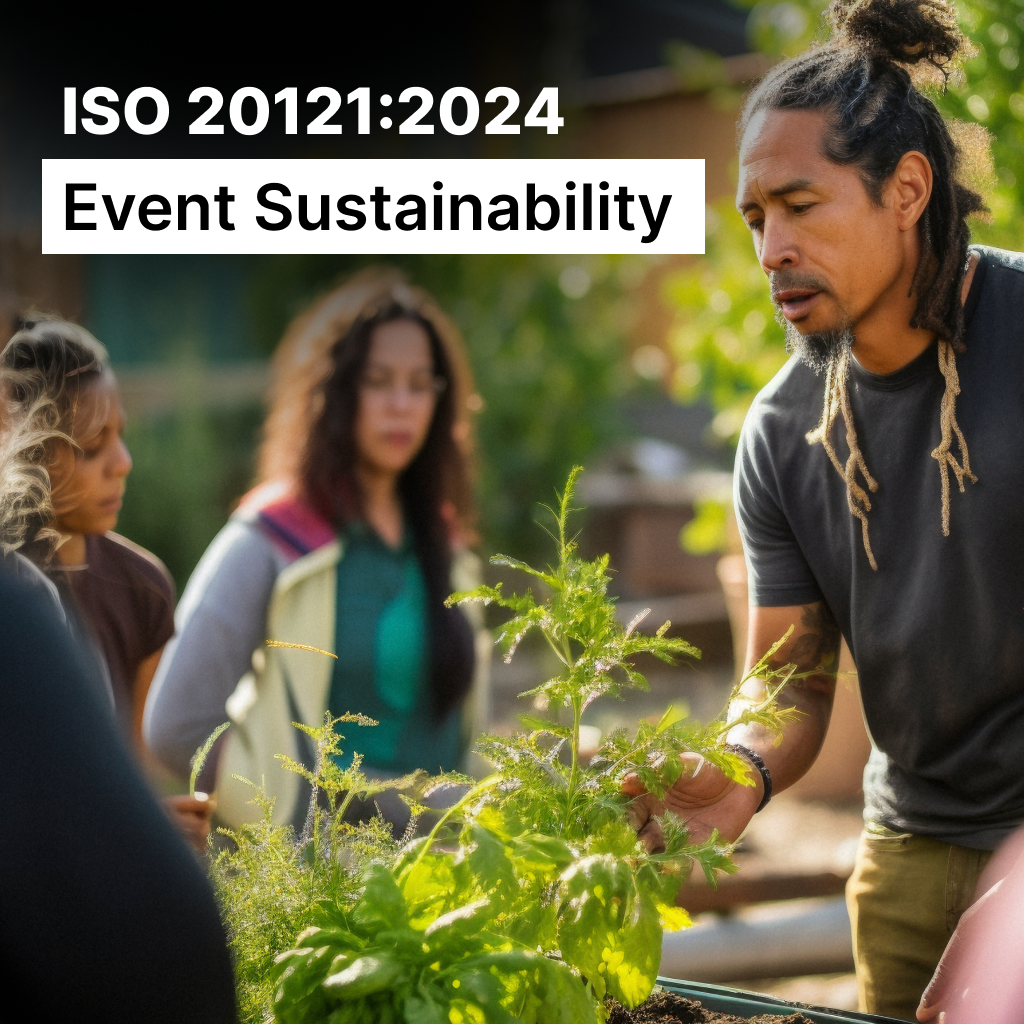
ISO 20121 Certification for Event Sustainability Management Systems
ISO 20121:2024 is an international standard that establishes a framework for managing sustainable events. It provides guidelines for integrating sustainability into event planning and management, helping organizations minimize their negative environmental, social, and economic impacts while maximizing the positive legacy of events. ISO 20121 certification for event sustainability demonstrates an organization's commitment to sustainable event management and responsible decision-making throughout the event lifecycle. By implementing ISO 20121, event organizers can ensure that sustainability considerations are at the core of their operations, enhancing credibility and meeting stakeholder expectations.
Structure of the ISO 20121 Standard
The ISO 20121 standard for sustainable events is divided into several key clauses, each outlining the requirements for establishing an effective event sustainability management system. The main clauses include:
1.Scope (Clause 1): Defines the boundaries of the standard, including what aspects of event sustainability are covered.
2.Normative References (Clause 2): Lists standards and documents referenced within ISO 20121 that provide additional guidance and context.
3.Terms and Definitions (Clause 3): Establishes terminology to ensure consistent understanding of key concepts related to event sustainability.
4.Context of the Organization (Clause 4): Requires organizations to identify relevant internal and external issues, as well as stakeholders that influence event sustainability.
5.Leadership (Clause 5): Focuses on the role of top management in demonstrating leadership, defining the event sustainability policy, and allocating responsibilities.
6.Planning (Clause 6): Covers the identification of risks and opportunities, sustainability objectives, and the planning required to achieve these goals.
7.Support (Clause 7): Involves the resources needed for an effective event sustainability management system, including personnel competencies, communication, and documentation.
8.Operation (Clause 8): Describes the processes for planning and controlling event sustainability, including supplier engagement, resource management, and event delivery.
9.Performance Evaluation (Clause 9): Addresses monitoring, measurement, analysis, and evaluation of the event sustainability management system, including internal audits and management reviews.
10.Improvement (Clause 10): Focuses on addressing non-conformities, implementing corrective actions, and fostering continual improvement in event sustainability.
Benefits of ISO 20121 Certification
Benefits of ISO 20121 certification offer a wide range of advantages for event organizers and stakeholders:
• Enhanced Environmental Responsibility: Certification encourages organizations to reduce waste, minimize resource consumption, and lower carbon emissions, contributing to a healthier environment.
• Improved Social Impact: By considering community needs and ensuring inclusive and accessible events, organizations can strengthen their positive social impact.
• Cost Efficiency: Through effective resource management, event organizers can optimize costs, reduce waste, and avoid unnecessary expenses.
• Reputation and Stakeholder Trust: Certification demonstrates a commitment to sustainable practices, enhancing the reputation of event organizers and building trust among attendees, sponsors, and partners.
• Compliance with Regulations: ISO 20121 helps organizations comply with local and international regulations related to environmental sustainability and social responsibility.
• Legacy Creation: The standard encourages a positive and lasting legacy for communities by integrating sustainability into all aspects of event planning and execution.
Eligibility Criteria for ISO 20121 Certification
To be eligible for ISO 20121 certification, an organization must demonstrate a commitment to sustainability in event planning and management. Key eligibility criteria include:
1.Defined Event Sustainability Management System (ESMS): Establish an event sustainability management system that aligns with ISO 20121 requirements.
2.Leadership and Commitment: Top management must show dedication to sustainability by creating a clear policy and setting objectives for sustainable event management.
3.Stakeholder Engagement: Identify stakeholders and determine how the organization can engage with them to understand and address their expectations and concerns.
4.Sustainability Objectives: Set measurable objectives for improving the sustainability of events, focusing on areas like waste reduction, community engagement, and resource efficiency.
5.Risk and Opportunity Management: Consider risks and opportunities related to event sustainability, and develop action plans to address them effectively.
Who Should Apply for ISO 20121 Certification?
ISO 20121 certification is suitable for organizations of all sizes involved in planning, managing, or supporting events. These may include event organizers, venue operators, suppliers, event service providers, and stakeholders in industries such as:
• Sports and Entertainment: Organizers of large-scale events, including music festivals, sports tournaments, and concerts, can benefit from ISO 20121 by integrating sustainability into all stages of event planning.
• Corporate and Business Events: Companies hosting conferences, exhibitions, product launches, or meetings can apply for ISO 20121 to ensure that sustainability is prioritized in their events.
• Non-profit and Governmental Organizations: NGOs and public bodies that organize public gatherings or community events can use ISO 20121 to demonstrate their commitment to sustainability.
• Event Venues and Suppliers: Event venues, catering companies, production teams, and other suppliers can adopt ISO 20121 to align their services with sustainability goals and appeal to environmentally conscious clients.
Mandatory Documents and Records for ISO 20121 Certification
Mandatory Documents:
1.Scope of the Event Sustainability Management System (Clause 4.3)
2.Event Sustainability Policy (Clause 5.2)
3.Sustainability Objectives and Planning to Achieve Them (Clause 6.2)
4.Roles, Responsibilities, and Authorities (Clause 5.3)
5.Documented Information to Support the Operation of Processes (Clause 7.5)
Mandatory Records:
1.Records of Stakeholder Engagement (Clause 4.2)
2.Risk and Opportunity Assessment Records (Clause 6.1)
3.Competence and Training Records (Clause 7.2)
4.Monitoring and Measurement Records (Clause 9.1)
5.Internal Audit Results (Clause 9.2)
6.Management Review Meeting Minutes (Clause 9.3)
7.Records of Corrective Actions (Clause 10.2)
Non-Mandatory Documents (Examples):
1.Procedure for Control of Documented Information
2.Procedure for Event Planning and Resource Management
3.Procedure for Supplier Evaluation and Selection
4.Communication and Stakeholder Engagement Procedure
5.Incident Response Procedure
What is a Certification Process for ISO 20121
The ISO 20121 certification process with TNV includes systematic steps to evaluate and verify compliance with the standard:
1. Stage One Audit: A preliminary audit to evaluate preparedness for the certification audit, including a review of ESMS documentation and initial identification of non-conformities.
2. Stage Two Audit: An on-site audit to assess the implementation and effectiveness of the ESMS, involving interviews, observation of activities, and review of records.
3.Addressing Non-Conformities: Identify and resolve non-conformities discovered during the audit. TNV auditors will provide detailed feedback and work with the organization to develop corrective actions.
4. Certification Decision: Upon successful completion of the audit and resolution of non-conformities, TNV will issue the ISO 20121 certification, demonstrating the organization’s commitment to sustainable event management.
5. Surveillance Audits: Conducted annually to ensure ongoing compliance and continual improvement of the ESMS.
6. Recertification Audit: Conducted at the end of the certification cycle (typically three years) to ensure continued conformity with ISO 20121 standards and to renew the certification.
What is a Cost of ISO 20121 Certification
The cost of ISO 20121 certification depends on various factors, including the size and complexity of the organization, the number of events being certified, and the scope of the ESMS. Certification costs typically include audit fees, implementation support, and registration fees. Organizations interested in obtaining ISO 20121 certification online or in person can contact TNV for a detailed quotation based on their specific needs and event characteristics.
How to Apply for ISO 20121 Certification
To apply for ISO 20121 certification, organizations can submit their inquiry through TNV’s website or via email. A detailed application form is available to provide information about the organization and its events. TNV will guide applicants through the entire certification process, from establishing the ESMS to achieving certification.
Integration of ISO 20121 with Other Standards
Event sustainability management with ISO 20121 can be integrated with other management system standards to create a more comprehensive approach to organizational sustainability. For instance, integrating ISO 20121 with ISO 14001 (Environmental Management) can enhance environmental performance by aligning event sustainability practices with broader environmental objectives. Similarly, combining ISO 20121 with ISO 9001 (Quality Management) can ensure that quality and sustainability are embedded in every aspect of event planning and delivery. Integration helps organizations achieve unified goals, improve efficiency, and demonstrate a commitment to sustainability on multiple fronts.
ISO 20121 accreditation for events helps organizations create a consistent, credible approach to sustainability that aligns with both internal values and external expectations. The integration of these standards also allows for better risk management, improved compliance, and increased stakeholder engagement, ultimately contributing to the success and sustainability of events.
- ISO 27001:2022
- ISO 20000-1:2018
- ISO 21001:2018
- ISO 14001:2015
- ISO 45001:2018
- ISO 22000:2018
- ISO 50001:2018
- ISO 27701:2019
- ISO 55001:2014
- ISO 41001:2018
- ISO 37001:2016
- ISO 13485:2016
- ISO/IEC 42001:2023
- ISO 20121:2024
- ISO 37301:2021
- ISO 27017:2015
- ISO 9001-2015
- ISO 27035 Certification
- ISO 27032 Certification
- ISO 27018 Certification
- ISO 27040 Certification
- ISO 27050 Certification
- ISO 29100 Certification
Certificate
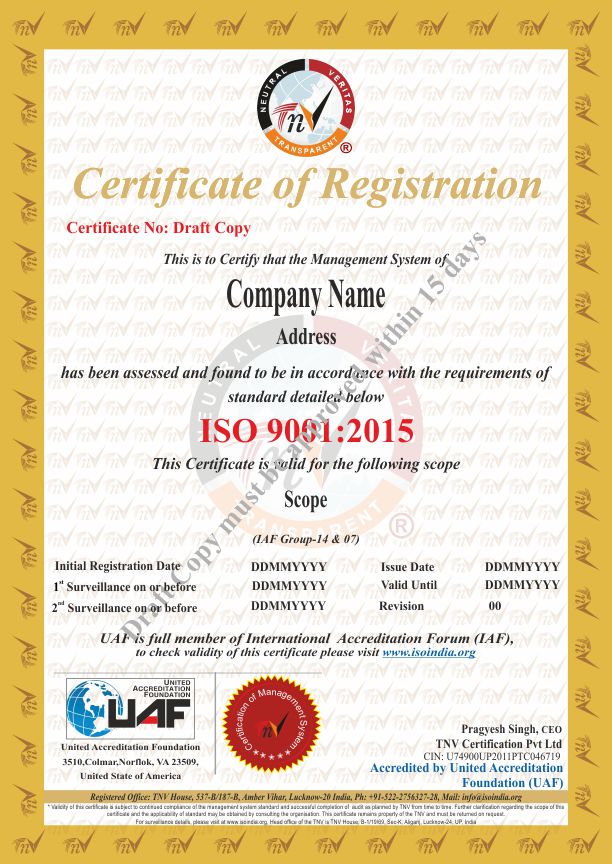
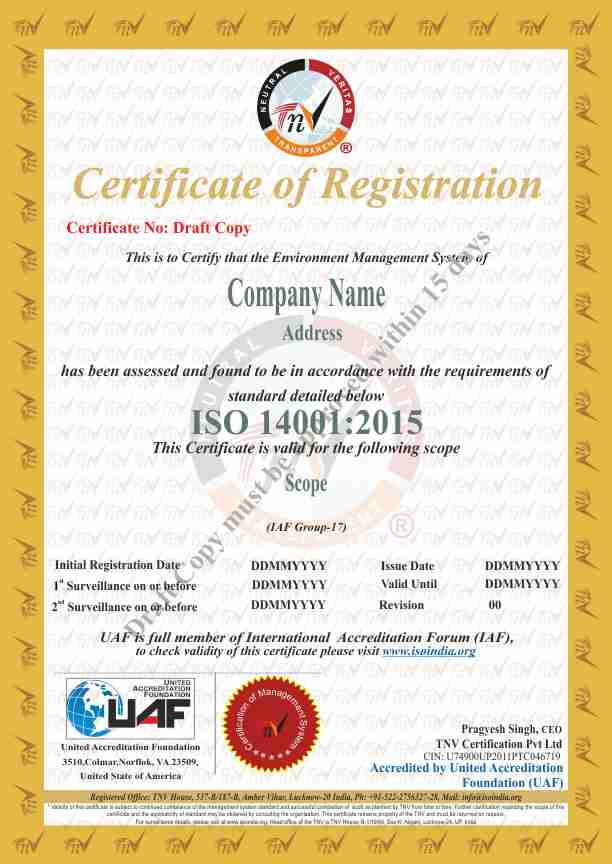
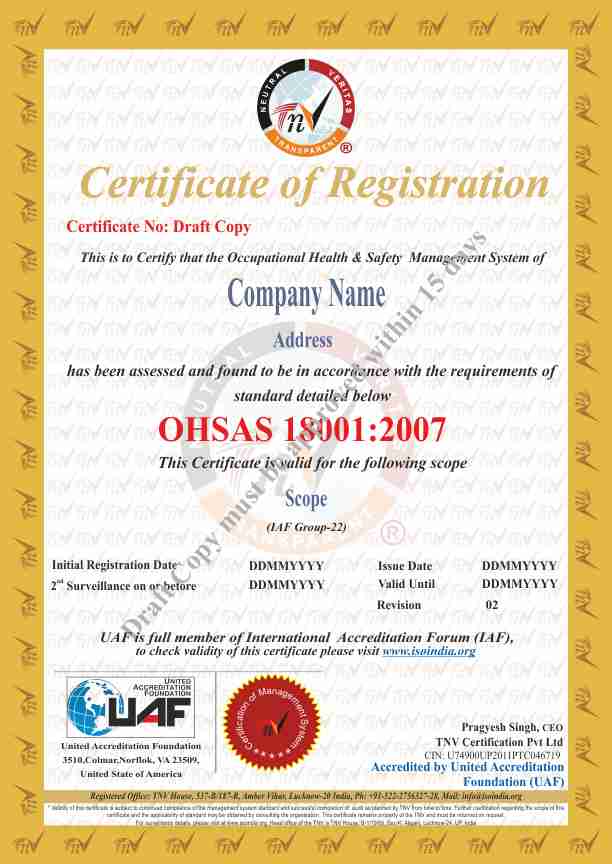
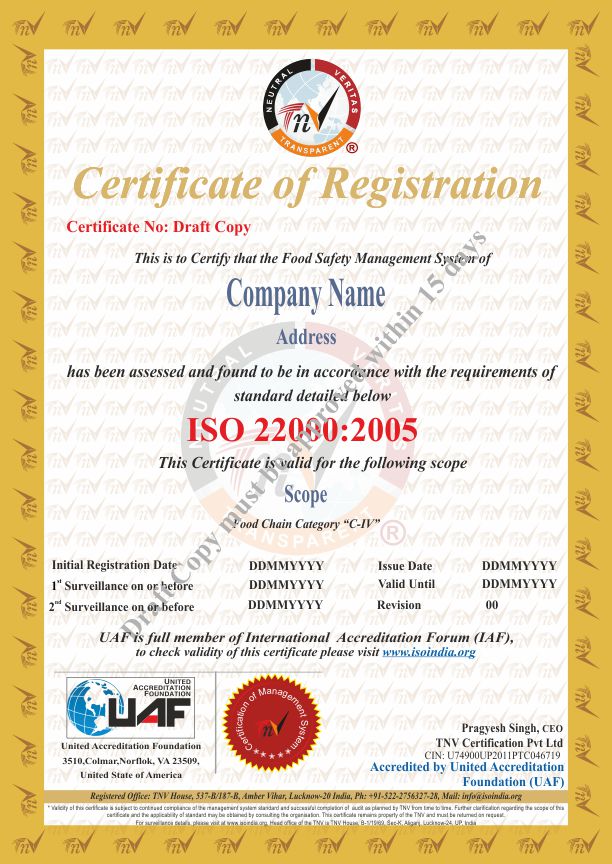
.jpg)
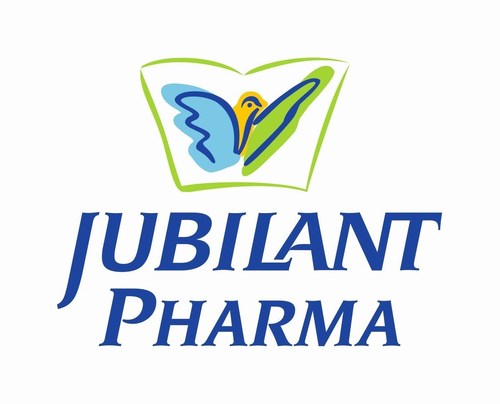 Sanjeev Sharma
Sanjeev Sharma
We are Certified by TNV since last 6 years and we are absolutely happy and satisfied with the systematic approach of the Team. Best Wishes.
»
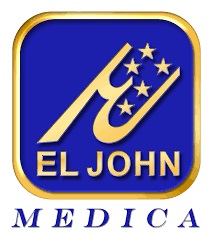 PT. Sun Health Care
PT. Sun Health Care
As always it was an excellent input that we got from TNV, looking forward to continuing a relationship with them. The assessment was very much a structured approach. Our team learned a lot Ari Rahmawati Director of PT Sun Health Care (El John Medica) »
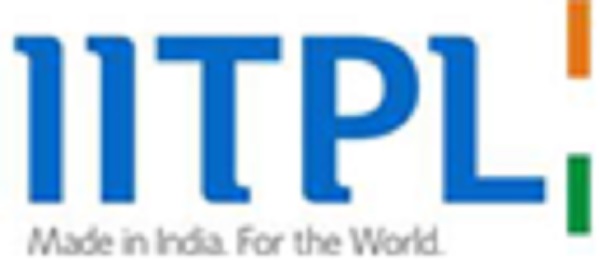 Innovation Imaging Technologies Pvt. Ltd
Innovation Imaging Technologies Pvt. Ltd
"May I take this opportunity to thank you for all your help in the arrangements and organisation for the Training of MD QMS Lead Auditor Certification Course attended. The course was very informative and structured to our requirements. I feel that the relationship that has been b »
 SSP Tech Consultancy Malaysia
SSP Tech Consultancy Malaysia
SSP Tech Consultancy Malaysia is so proud on the long lasting relationship with TNV Certification PVT LTD.
We have been working with TNV since 2010 and there were more than 80 clients have been certified in the field of ISO9001 , ISO14001, ISO45001 & ISO 13485.
We thank you For »
 Maria P. Belyanchikova
Maria P. Belyanchikova
Dear Sir,
We kindly express gratitude for your
outstanding service and long-lasting
cooperation.
Since 2014 our companies in Russia, Moscow,
and United Arad Emirates, Dubai, have several
times ordered certification, surveillance and
audit from TNV Certification Pvt LTD and »
 Unnikrishnan Narayanan Namboodiri
Unnikrishnan Narayanan Namboodiri
Dear Sir,
It is with great pleasure that we at Inspirit Safety Solutions Pvt Ltd, are conveying our gratitude and appreciation to TNV Certification Pvt Ltd for providing the best of services in the domain of
Management System trainings and certifications by accepting us as an a »

I have developed a great relationship with TNV Certification Pvt LTD.
I have undergone a few trainings with TNV training team & have
found their approach to be a highly professional & committed to
providing quality trainings & certifications. I am glad that I also have
had th »







